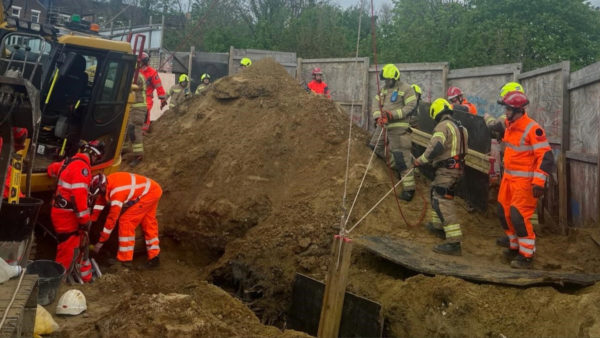Dame Judith Hackitt should understand that the principles of value engineering are not only about saving money, writes Katherine Bethany

Katherine Bethany
Dame Judith Hackitt, in her recent speech at the Chartered Association of Building Engineers, stated that the term ‘value engineering’ should be driven out of construction. She commented that it was a phrase she would be “happy to never hear again. It is anything but value. It is cutting costs and quality.”
In reviewing her remarks, and the definition of value engineering, I would agree with her – when used as only a “cost cutting” tool, it is not a good idea. That is not how SAVE International, the international society devoted to advancing and promoting value methodology, defines value engineering. Done correctly, the outcome of the value methodology is definitely not cost cutting or a cheapening of the project.
Value engineering was developed in 1942 by Larry Miles for General Electric (GE) during World War II. Miles developed the tool to find alternative materials and ways to build products produced by GE during World War II when materials were in short supply.
Performing the value methodology correctly requires an analysis of the function(s) of the project or product or system being studied. The outcome solves problems and reduces life-cycle costs while improving performance and quality. If a process does not include the function analysis, or the recommendations and solutions from the study, or the improvements to quality and performance, then it is not a true value engineering study.
Current procurement systems that rely on “lowest cost” awards are flawed and Dame Hackitt’s efforts at reform should be applauded. Cost cutting exercises which are purely about saving money are not true value engineering. But applied correctly, value engineering does have an important place in construction.
Katherine Bethany is president of SAVE International, which promotes and advances the use of value engineering.
Comments
Comments are closed.









If this is the case in the last 20 years I have never seen value engineering carried out correctly.
For example an engineer specifies a Fan Coil Unit of a certain manufacturer and type. Then someone who does not know the long term implications value engineers the project and swaps it out for an item of the same specification but unknown to them the item specified by the engineer meets the required performance AND is the most reliable and easy to maintain unit available. The person who value engineers that has just reduced the reliability and efficiency of the system without having a clue as to the long term repercussions of their actions i.e. that a maintenance job which might have occurred twice in the lifetime of the unit & would have taken 1 day and cost @£5000 to resolve per instance now takes 3 days and costs £15000 and occurs 5 time during the units lifespan. Where is the value?
My immediate thoughts upon reading those comments from Dame Judith Hackitt were just the same. Many Contractors work hard to identify better value for Clients through VE either thought improved build ability, faster installation, alternative or added benefits rather than simply lower cost. It should continue as it promotes innovative thinking provided properly reviewed before adoption.
Value Engineering is typically undertaken at the end of the design process when the project doesn’t stack-up financially. It therefore does tend to focus on cost cutting.
Value is the key word. If the development has been properly managed, every aspect should be evaluated as the design is developed. If it is determined that the various elements achieve the best cost for achieving the Client’s values, there should be no scope for Value Engineering at the end of the process. Attempting to find a cheaper alternative (or doing something different) at the end stage, means something has gone awry during the design process.
Proper management requires a considerable degree of impartiality. Not only is the Lead Designer not going to test and question its own ideas and proposals, it is not going to welcome fundamental challenges by other designers. Project Managers rarely take responsibility for managing the designers. So who are the managers that seek to avoid Value Engineering?
I totally agree with Katherine Bethany. The keep points are in the description of the definition – VALUE and ENGINEERING. I do have sympathy with Dame Judith Hackitt who must have experienced some bad practices of a system of Value Engineering.
Well done Katherine!
Value Management (VE/VM) is an excellent tool if used to identify alternative ways of achieving similar value whilst maintaining the clients objectives and needs as promoted in UK by the Institute of Value Management (IVM).
Since the early 2000’s VM has been hijacked by well meaning QS’s as a cost cutting tool and as a result has suffered a demise from its heady days from 1995 to 2005.
VM should not be scrapped but promoted using skilled professionally qualified value managers and perhaps then Dame Judith (and the construction industry) would see the benefits of true added value.
Proud Value Manager (making a difference for 20 years by eliminating unnecessary waste and for our clients )
“Cost cutting exercises which are purely about saving money are not true value engineering.” Agreed! However, when considering betterment of construction materials or material sustainability as alternates to specified products; value engineering become systematic method of improving the value of materials/products and services by using an examination of construction quality control management. The quality of designs interwoven with value engineering, will set basic functions to preserve construction integrity and not reducing the consequence of pursuing customers values for money. Thus, adequate project management definitely will enhance the value of any projects.
I think this argument is flawed. The original VE applied to manufacturing where proper function remained key and critical to the analysis.
It doesn’t apply in construction as in my experience VE was always an excuse to cheapen design and ultimately undermine proper function.
Indeed as more contractors moved into maintenance contracts poor performance yeilds vast profits and long term revenue streams. So whats not to like in using techno babble to justify that!
8 different comments on one subject. is there such a thing as joined up working